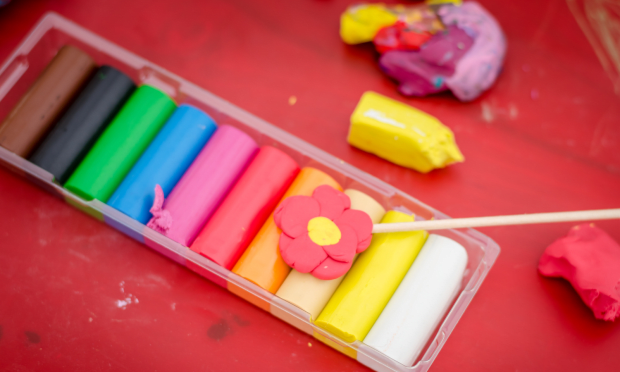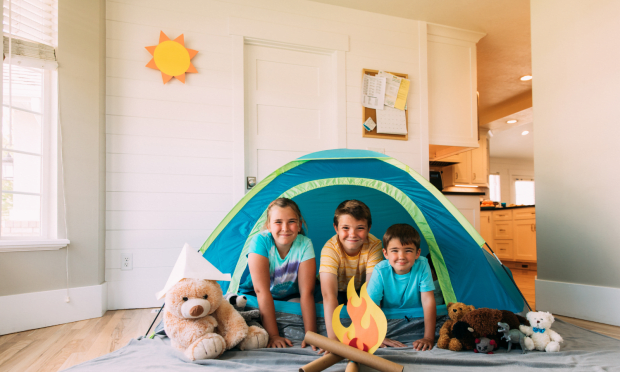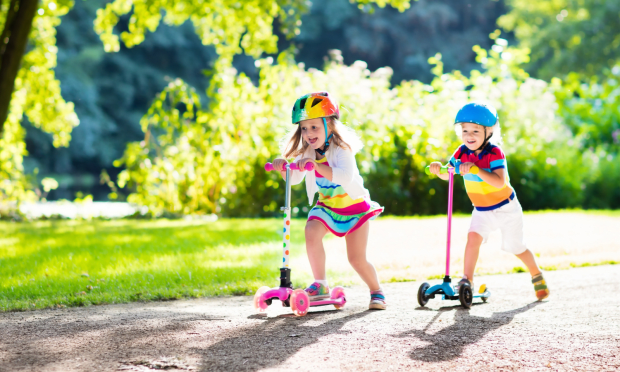Be warned, an over scheduled summer could have dire consequences for your kids, here's how to unplug.
Summer is all about playing outdoors, and now we are learning even more reasons why this is so important for our kids. Many parents over scheduled kids during the summer for safety and educational reasons. After a year-plus of them sitting home, physically distancing, and Zoom learning—which cut them off from their normal activities—we are even more likely to pack out their summer calendars to make up for lost time. But Michele Borba, Ed.D., says another over scheduled summer could have dire consequences.
Related: Unplugged travel toys perfect for your family trip

The importance of play for kids
- Children’s stress levels fall within minutes of seeing green spaces.
- ·60 minutes is the recommended time kids should spend on active and vigorous play daily.
- Kids are 6x more likely to play a video game than to ride a bike on a typical day.
Dr. Borba says, “Kids are in a tough spot. They need this summer to reset and recover from the stress, grief, and trauma caused by COVID.
Dr. Borba says most kids don’t have the skills to navigate and recover from everything they’ve been through for the past year, not to mention the disappointments and losses they will encounter down the road.
“We are likely to see an influx of mental health issues in our kids very soon,” says Dr. Borba. “It’s crucial to get in front of the crisis now. Parents must help their children overcome challenges, deal with stress, cope with disappointment, and learn to thrive. And summer is the perfect time to teach these lessons.”

Summer Activities to Help Kids Unplug
Here are some summertime activities for your kids that are free or low cost and backed by science to boost resilience and reduce stress.
It is easy to dismiss toys, cardboard boxes, dress-up games, and dolls as “light-weight,” but play is exactly what the Pandemic Generation needs. Play is one of the most often overlooked resilience-builders because it encourages kids to use their imaginations and enhances brain development, social-emotional skills, and promotes executive functions—which helps kids pursue goals, ignore distractions, and reduce stress. Put out scarves, markers, hats, wooden blocks, dolls, or anything else laying around the house to inspire play in younger children, and let the fun begin. If you do pick a summer camp make sure it's one where there are no devices allowed.

Embrace the great outdoors
One of the best-known mood elevators is nature. A study found that taking a 20-minute daily stroll or sitting in a place that makes you feel in contact with nature can significantly lower your stress hormone levels. Get out those hiking shoes or bikes, or set up a tent in your backyard, or keep a basket filled with fun things like bubble blowers, rubber balls, sidewalk chalk, scooters, shovels, and pails.
Other outdoor boredom Busters
- Set up a basketball goal.
- Give your kid a bag and tell him to go collect something: bugs, leaves, flowers.
- Provide a kite-building kit.
- Hand out plastic cups, spoons, and bowls and encourage her to go dig.
- Fill a can with water and tell your younger kids to paint a fence.
Start a hobby
Hobbies can be a healthy diversion from stress and are also a great way for kids to recharge, get away from everyday pressures, and learn to enjoy their own company. The trick is to find one that supports your child’s interests and abilities—and it should also be one that they can do alone. Begin by sharing your interests or starting family hobbies, and then watch what captures your child’s attention. You might even encourage a grandparent or relative to teach baking, knitting, woodworking, drawing, stamp collecting, guitar, or any of their other interests. Be sure not to pressure them. Instead, let your child explore activities and find their own joy. Shared hobbies can also help kids make new friends and reduce loneliness, so encourage them to try group guitar, yoga, or drawing lessons.
Encourage your child to read
“Start a neighborhood book swap or a kid book club (online or off) where your child can find new titles and make new friends,” says Dr. Borba. “Or just drape a sheet over a dining table to create an instant reading tent for families to read together and enjoy each other’s company. Don’t forget to get a library card!
“Kids don’t need a lot of programmed activities to have the rich, rewarding, and educational summer experiences that they desperately need right now,” concludes Dr. Borba. “With a little support from you, they can unleash their creativity and enjoy an unscheduled summer that is anything but dull or boring.”
Michele Borba, Ed.D., is the author of Thrivers: The Surprising Reasons Why Some Kids Struggle and Others Shine
MORE KID-CENTRIC FUN FROM MOMTRENDS
PIN IT!
Need more ideas on what to do with the kids? Be sure to follow our Activities to Do with the Kids board on Pinterest here.
Momtrends was not paid for this post.
